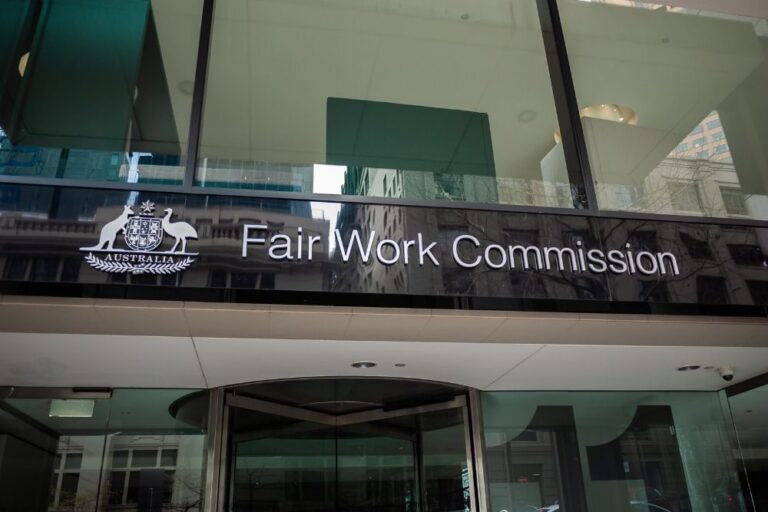The Fair Work Ombudsman has had another busy year, recovering more than half a billion dollars in unpaid wages to workers in Australia. Following through with its commitment to target small businesses, the Ombudsman’s Annual Report shows more than 3,000 compliance and penalty infringement notices were issued Australia-wide.
The record number of notices shows a continuation of Fair Work’s tough stance on businesses underpaying their staff. The Ombudsman is particularly focused on randomly auditing small and medium-sized businesses in “high-risk” areas. In 2022-23, this included the fast food, restaurants, cafes, and agricultural industries.
The Ombudsman prioritised the small business sector, but hasn’t missed large corporations either, filing 81 litigations and entering into 15 enforceable undertakings with big businesses. In its report, Fair Work specifically calls out many of Australia’s largest companies, arguing they still aren’t investing adequately enough in payroll systems and proper governance.
In a first for the regulator, it has also commenced court action against a franchisor, alleging it is legally liable for contraventions by its franchisees – including underpayments of workers. The move could set a new precedent – with franchisors typically not held liable for the actions of their franchisees in the past.
Small and medium-sized businesses still in the firing line
The Ombudsman spent much of the year focussing on spot audits of small and medium-sized businesses for underpayments. These snap audits were based on tip-offs as well as targeting hotspot areas – for example, auditing a specific geographic food precinct.
Fair Work still believes that small businesses have the most common risk factors for underpayment, like not understanding Awards or lacking a proper electronic time and attendance system.
‘Targeted Compliance’ activities were undertaken throughout the year which often involved verifying intelligence and pursuing businesses at high risk of non-compliance. In all, it led to 977 targeted compliance activities. Most of the contraventions of the Fair Work Act were:
- Underpayment of hourly rates
- Failure to correctly pay weekend penalty rates
- Advertising pay rates in contravention of the Fair Work Act.
Focus on Fast Food, Restaurants, and Cafes
The Ombudsman dedicates an entire section of its report to issues within the Fast Food, Restaurants, and Cafes sector (FRAC). It notes that while employing only 5% of Australian workers, the FRAC sector represents 22% of all compliance notices issued.
The heavy audit and legal focus in the FRAC sector means it will continue to be a target area for the Fair Work Ombudsman in the next year.
Litigation against larger corporations
Larger corporations are still in Fair Work’s sights, however most issues are now ‘self-reported’ by companies. Typically, this has involved internal teams detecting a problem with their systems and referring it to Fair Work.
Often an enforceable undertaking is signed that basically agrees to repay wages and ensure the problem doesn’t happen again. Fair Work has also initiated litigation in more severe cases.
First Litigation to hold franchisors responsible for franchisee behaviour
Fair Work has commenced legal action against a franchisor it claims is liable for underpayments by its franchisees. If successful, the landmark case would be the first time the Ombudsman has prosecuted a franchisor for the actions of its franchisees.
The Ombudsman alleges that while the business did not directly underpay workers more than $30,000, an action which was undertaken by its franchisees, it should have known its franchisees would underpay workers.
Fair Work believes that as a “responsible franchisor entity”, the business in question is legally liable for alleged contraventions by its franchisees, including underpayments of workers. Under law, franchisors are required to take “reasonable steps” to prevent contraventions of the law by their outlets.
However, the case is more complicated than a simple issue of franchisees underpaying workers. Typically, this isn’t enough for the franchisor to be held liable – otherwise many franchisors would be responsible for the actions of rogue franchisees.
Instead, Fair Work argues the business had prior infractions – including an enforceable undertaking back in 2015, and subsequent audits. The Ombudsman alleges that the business was on notice about compliance issues for many years and should reasonably have known its franchisees would underpay their workers.
The case is still being heard, but could set an important precedent for franchisors across Australia. While the legal action should be of concern to franchisors, it’s important to remember that the case revolves around a franchisor which seemingly did very little to invest in compliance activities.
How to stay compliant
Fair Work’s report reveals that the basics of compliance are still the most important. Having good governance and quality record keeping in place are still key issues for the Ombudsman.
In the past year, Fair Work has mainly penalised businesses for getting the basics wrong. For example, in its report Fair Work states that the most common Fast Food, Restaurant and Cafe issues are award coverage, pay, and record-keeping.
In other words, the vast majority of businesses penalised didn’t classify their employees correctly, or didn’t have proper record keeping of timesheets.
Classifying Employees
Of course, sometimes rectifying these issues is far more complicated than it can initially seem. Many Award classifications are murky, and it’s easy to mistakenly list someone under the wrong award. We’ve listed some of the most common issues with classifying employees below:
Unclear Classifications
Many of the award classifications are poorly written and don’t describe the types of work they cover very well. This can often lead to confusion. It might sound a bit silly, but it’s really important to work out exactly what roles your employees perform, and to read the classifications.
Inertia Factor
This is probably the biggest issue. Many businesses will read the classification of what their employee is and never review it. If they make a mistake, it’s often set in stone for years afterwards. The law can also change. Make sure you review your setup once a year – we recommend doing it during a quieter time.
Misunderstanding contracts and awards
Make sure you don’t remove the Award rights of an employee that’s on a contract. All employees have an employment contract. Having a contract does not affect whether the employee is award covered, because it is not possible to contract out of award coverage. The only exception is that highly paid employees can be given a “high income guarantee”, which means that any award will not apply to them.
Implement Effective Governance
Typically, Fair Work seeks to target businesses that have obvious flaws in their compliance systems. With this in mind, we recommend taking a vigilant approach towards governance to stay on the right side of the law.
Being diligent and taking risk seriously is the first step toward being compliant. With this in mind, there are some quick steps to take which will strengthen your businesses governance and systems.
Use Technology
Using digital Workforce Management Software can significantly reduce the risk of human error in your Australian business. Moving from a paper based system to a digital operation, the risks of storing and entering data can be eliminated entirely.
Fair Work Inspectors will often look for good record keeping as a first point of call when auditing businesses. Having your records stored digitally on software like Tanda will prevent you from losing them.
Train Staff
Having human oversight is key to making sure things don’t go wrong with your governance system. There is ultimately no substitute for having well-trained staff in your business. Being able to spot potential compliance issues is important.






